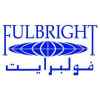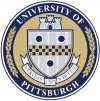Supervisor – Dr Carlos Miraldo Ordens
Aboriginal and Torres Strait Islander People’s (Indigenous) knowledge holistically describes the significance, flow sources, connectivity, pathways and lags of water moving through and under the earth. To date, there has been limited research led by Indigenous interests into how Indigenous knowledge of water can be incorporated into hydrogeological investigations and groundwater management in Australia. As such, standard water management strategies cannot effectively prevent surface and groundwater degradation impacting cultural values, rights and access and the needs of traditional owners. This is notably the case under a changing climate and in regions impacted by heavy water users, such as mines and the extractives sector generally. Furthermore, this valuable knowledge is not being sufficiently used to inform groundwater planning, sharing, analyses and models, which restricts the potential of this knowledge to better inform sustainable water resource use. This is especially important as mining landscapes transition to post-mining scenarios.
The Indigenous student will collaborate with members of a team and traditional-knowledge holders in relation to groundwater in one or more study areas in Queensland. The case study sites will be decided during the early stages of the project. Currently, potential candidate case study sites are mining-affected areas of Queensland’s Bowen Basin, Surat Basin and Stradbroke Islands. In a collaborative approach, Indigenous local knowledge at any/all of these sites will be combined with hydrogeological data (e.g. hydrochemistry, isotopes, pressure) to understand origin of recharge and flow pathways, effects of geology and climate variability, etc. New modelling approaches will integrate all data to better predict hydrogeological processes.
Additionally, the project will seek to investigate effective ways for knowledge sharing between customary landowners and hydrogeologists. It is critical that knowledge sharing recognises the locally based form of Indigenous knowledge and respects protocols in relation to who has the right to share cultural knowledge. The approach taken will create a methodology that can be used across Australia to better combine traditional and hydrogeological knowledge, aiming at providing better groundwater outcomes for traditional owners and country. Ultimately, this will lead to groundwater investigations and management plans integrating traditional knowledge as the standard approach in Australia.
A working knowledge of Anthropology; Environmental Science or Engineering; Earth Sciences; Hydrology; or, Civil Engineering would be of benefit to someone working on this project.
Sustainable Minerals Institute
The University of Queensland's Sustainable Minerals Institute (SMI) is a world-leading research institute integrating the expertise of technical, environmental and social specialists to deliver responsible resource development across the life of mine. We are dedicated to finding knowledge-based solutions to the sustainability challenges of the global minerals industry, and training the next generation of industry leaders.
SMI is home to six research centres and a Centre of Excellence based in Chile. We have a strong track record in developing world leading solutions in exploration, mining, mineral processing, workplace health and safety, mine rehabilitation, social responsibility, water and energy.
At SMI, we are truly independent, objective and rigorous and our researchers have experience working across the research, government and industry sectors. We offer professional development training to many of our partners and can tailor courses to suit industry trends or company needs. We offer supervision to PhD students and are proud that our alumni are now in senior roles in resource companies and government organisations around the world.
SMI comprises seven major research Centres:
- WH Bryan Mining and Geology Research Centre
- Julius Kruttschnitt Mineral Research Centre
- Centre for Social Responsibility in Mining
- Minerals Industry Safety and Health Centre
- Centre for Mined Land Rehabilitation
- Centre for Water in the Minerals Industry
- International Centre of Excellence in Chile
Information about the Institute may be accessed on the Institute's website.















